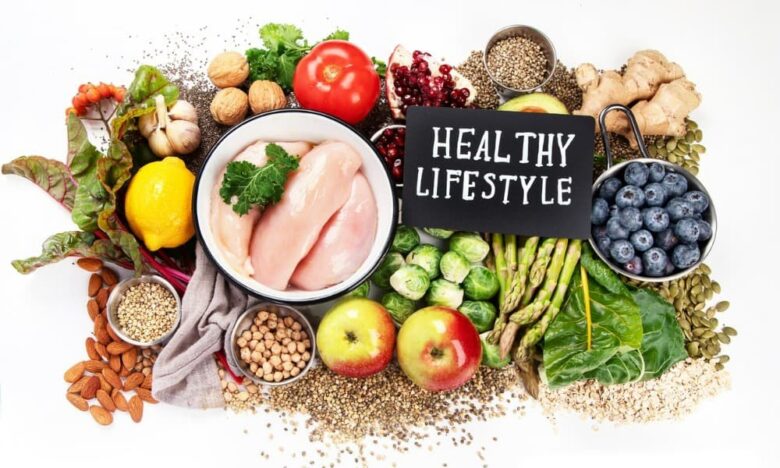In today’s fast-paced world, more people are becoming conscious of the foods they eat and how those foods affect their health. Among the many nutritional trends, “superfoods” have gained significant attention—and for good reason. These nutrient-dense foods are packed with vitamins, minerals, antioxidants, and other compounds that support overall health, boost energy, and reduce the risk of chronic diseases. While no single food is a magic solution, incorporating superfoods into your diet can make a big difference in your well-being.
This article explores the power of superfoods, the essential nutrients they provide, and how you can easily integrate them into your daily meals for long-term health benefits.
What Are Superfoods?
Superfoods are foods rich in nutrients that deliver exceptional health benefits relative to their calorie content. They are often plant-based but can also include some fish and dairy products. The term “superfood” isn’t a scientific classification, but it highlights foods that are especially beneficial due to their high concentration of antioxidants, vitamins, minerals, and healthy fats.
The power of superfoods lies in their ability to nourish the body while also protecting it from inflammation, oxidative stress, and nutrient deficiencies.
Key Nutrients Found in Superfoods
Superfoods are nutrient powerhouses, supplying the body with a wide range of essentials. Here are some of the key nutrients you’ll find:
- Antioxidants: Compounds that fight free radicals, reducing cell damage and lowering the risk of chronic diseases.
- Fiber: Supports digestion, stabilizes blood sugar, and promotes satiety.
- Healthy fats: Omega-3 fatty acids and monounsaturated fats that benefit heart and brain health.
- Vitamins and minerals: From vitamin C and vitamin A to iron, calcium, and magnesium, superfoods deliver a variety of micronutrients.
- Phytochemicals: Plant-based compounds like flavonoids and carotenoids that support immune function and disease prevention.
Examples of Popular Superfoods
Superfoods are diverse, and many are readily available at your local grocery store. Below are some of the most popular and widely researched:
Berries
Blueberries, strawberries, raspberries, and blackberries are rich in antioxidants like anthocyanins, which reduce inflammation and support brain health. They are also high in fiber, making them great for digestion and blood sugar control.
Leafy Greens
Spinach, kale, and Swiss chard are loaded with vitamins A, C, and K, along with minerals like iron and calcium. These greens support bone health, boost immunity, and promote heart health.
Nuts and Seeds
Almonds, walnuts, chia seeds, and flaxseeds are excellent sources of omega-3 fatty acids, protein, and fiber. They are heart-friendly and provide sustained energy throughout the day.
Fatty Fish
Salmon, mackerel, and sardines are rich in omega-3 fatty acids, which reduce inflammation and support brain function. They also provide high-quality protein and vitamin D.
Whole Grains
Quinoa, oats, and brown rice are fiber-rich, helping regulate digestion and keep you full longer. They also deliver essential B vitamins that support metabolism and energy production.
Legumes
Lentils, chickpeas, and black beans are packed with protein, fiber, and iron. They are excellent for vegetarians and anyone seeking affordable, nutrient-dense foods.
Green Tea
This ancient beverage is full of polyphenols, particularly catechins, which act as antioxidants and support metabolism, brain health, and heart health.
Avocados
Avocados provide healthy monounsaturated fats, potassium, and fiber. They are excellent for heart health and help keep you feeling satisfied after meals.
Dark Chocolate
With at least 70% cocoa content, dark chocolate provides antioxidants, iron, and magnesium. In moderation, it supports heart health and boosts mood.
Benefits of Adding Superfoods to Your Diet
Incorporating superfoods into your diet offers a wide range of benefits:
Boosts Immunity
Superfoods like citrus fruits, leafy greens, and nuts provide antioxidants and vitamins that strengthen your immune system and protect against infections.
Supports Heart Health
Omega-3 fatty acids from fish, fiber from whole grains, and plant compounds from fruits and vegetables reduce cholesterol levels and improve blood circulation.
Enhances Brain Function
Nutrients like omega-3s, flavonoids, and antioxidants support memory, focus, and long-term brain health.
Promotes Healthy Digestion
Fiber-rich foods like legumes, whole grains, and fruits improve digestion and support a healthy gut microbiome.
Reduces Risk of Chronic Diseases
Studies show that regular consumption of superfoods can lower the risk of diabetes, heart disease, and certain cancers due to their anti-inflammatory and antioxidant properties.
Practical Tips to Add Superfoods to Your Meals
Adding superfoods to your diet doesn’t have to be complicated or expensive. Here are some easy ways to get started:
- Start your morning with oatmeal topped with berries and chia seeds.
- Replace sugary snacks with a handful of nuts or a piece of dark chocolate.
- Add spinach or kale to smoothies, soups, or stir-fries.
- Enjoy grilled salmon with quinoa and roasted vegetables for dinner.
- Brew green tea instead of reaching for sugary drinks.
- Use avocado as a spread on whole-grain toast or in salads.
Small, consistent changes like these can add up to significant long-term benefits.
FAQs About Superfoods
Q1: Are superfoods expensive?
A1: Some superfoods like exotic berries or supplements can be costly, but many affordable options like beans, oats, spinach, and apples provide the same health benefits without straining your budget.
Q2: Can superfoods replace a balanced diet?
A2: No single food can provide all the nutrients your body needs. Superfoods should be part of a balanced, varied diet that includes proteins, carbs, fats, fruits, and vegetables.
Q3: Are frozen superfoods as healthy as fresh ones?
A3: Yes, frozen fruits and vegetables often retain their nutrients because they are frozen at peak ripeness. They are a convenient and budget-friendly way to enjoy superfoods year-round.
Q4: How often should I eat superfoods?
A4: Ideally, include a variety of superfoods daily. Even small amounts, like a serving of berries or a handful of nuts, can make a noticeable difference in your health.
Q5: Do I need supplements if I eat superfoods regularly?
A5: Whole foods should always be your primary source of nutrients. Supplements may help in cases of deficiencies, but they cannot replace the benefits of a nutrient-rich diet.
Conclusion
Superfoods are not a magic cure, but they are powerful allies in maintaining and improving health. Packed with vitamins, minerals, antioxidants, and healthy fats, they support immunity, heart health, brain function, and digestion. The key is balance—incorporating a wide range of superfoods into your meals ensures that your body receives the nutrients it needs to thrive. By making small, mindful adjustments to your diet, you can harness the power of superfoods and enjoy long-lasting benefits for your overall well-being.




